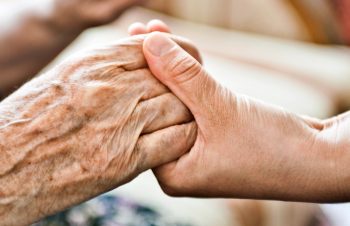Palliative Care
The gift of life comes to us from God and takes us back to God.
The movement towards euthanasia is based on the mistaken belief of the supremacy of individual rights. “Whatever its motives and means, direct euthanasia consists in putting an end to lives of disabled, sick or dying persons. It is morally unacceptable.” (No 2277 Catholic Catechism)
The inevitability of death is a given but in the Christian world view ‘life is changed not ended.’ The claim that God has on us takes on a dramatic turn that humanly speaking, we cannot fully explain. Christians rightly celebrate Christ’s resurrection as a coming to life after death. This fact is pivotal in our belief system and it is the reason why so many buy in to the teachings of Jesus and spread the good news.
The dying should be given attention and care to help them live their last moments in dignity and peace.
The human condition still leaves us with the approach of natural death. There is a very positive response, not all of it religious, based in the Hospice movement. Article 2299 in the Catholic Catechism states, “The dying should be given attention and care to help them live their last moments in dignity and peace.” This movement recognises the certainty of death and seeks to alleviate with medical, spiritual and human care, the end of a person’s life. Hence we have the term ‘Palliative Care.’
This can take place in an institution such as a hospice or, depending on the circumstances, it could take place in a person’s own home. As medical science progresses the means practitioners have to alleviate pain, both physical and psychological, has increased. The Church has always had an interest in the health and dignity of the individual. In our own corner of the world a number of Religious Orders, mainly women, have made a significant contribution to this mission of the Church.
The Christians, with their belief in the after-life, have a significant advantage over non-believers in today’s society. Yet even at the human level many are against the direct ending of a person’s life.
This is not to say we should be without compassion or understanding of a purely human solution – but in the end it is our moral imperative that ‘one’s life belongs to God’ that must stand as our guide. Debra Vermeer has more to say about this topic on page 34 of this month’s issue.

 Entries(RSS)
Entries(RSS)